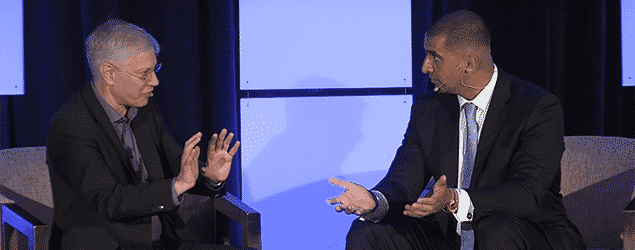Read Now: “Q&A: An Objectivist Perspective on Foreign Policy, Moral Ideals, and the Israeli-Palestinian Conflict”

In this interview, originally published in the Jewish newspaper Új Kelet, Elan Journo comments extensively on the relevance of Ayn Rand’s ideas; the false alternative between faith-based certainty and moral relativism; the value of freedom, and other topics. Here’s an excerpt:
How is Rand relevant to foreign policy? Can you bring morality back to foreign policy?
Her ideas are crucially relevant to cultural issues, and foreign policy in particular. The moral and political ideals of Objectivism point to what government should look like, and what it should do — not only domestically but also in the realm of foreign policy. For Objectivism, a proper government is one that protects the individual rights of its citizens. Such a government, through the police and objective law, acts as our agent of self-defense. That is its essential role in securing our freedom to act to pursue our goals, to trade, to prosper. Just as the police and courts are essential to protect our rights domestically, so we need an effective military force to protect our freedom from foreign threats.
So, the over-arching principle that should guide our foreign policy is individual rights. What’s in our interest as a nation in the arena of foreign affairs is nothing more than the aggregate interest of each American to the protection of his rights. The distinctively American approach to foreign policy entails an exclusive concern with protecting our own rights. It is a policy of pursuing America’s self-interest.
While people complain that America is only concerned with its own interests, and despite President Trump’s “America First” rhetoric, in reality, American policy for decades has operated without a clear, let alone rational, conception of our own interest. Our policy, in fact, has been by turns amoral and self-effacing. That’s a point I discuss at length in my books, Winning the Unwinnable War and Failing to Confront Islamic Totalitarianism. I develop that point further in my upcoming book, “What Justice Demands: America and the Israeli-Palestinian Conflict” (working title). And, what Trump has agitated for — notably, economic nationalism and a tribal suspicion of outsiders — is contrary to a genuinely self-interested policy.
Read the whole interview here.
* * *
For more news on ARI’s activities in the United States and abroad, subscribe to Impact Weekly.



